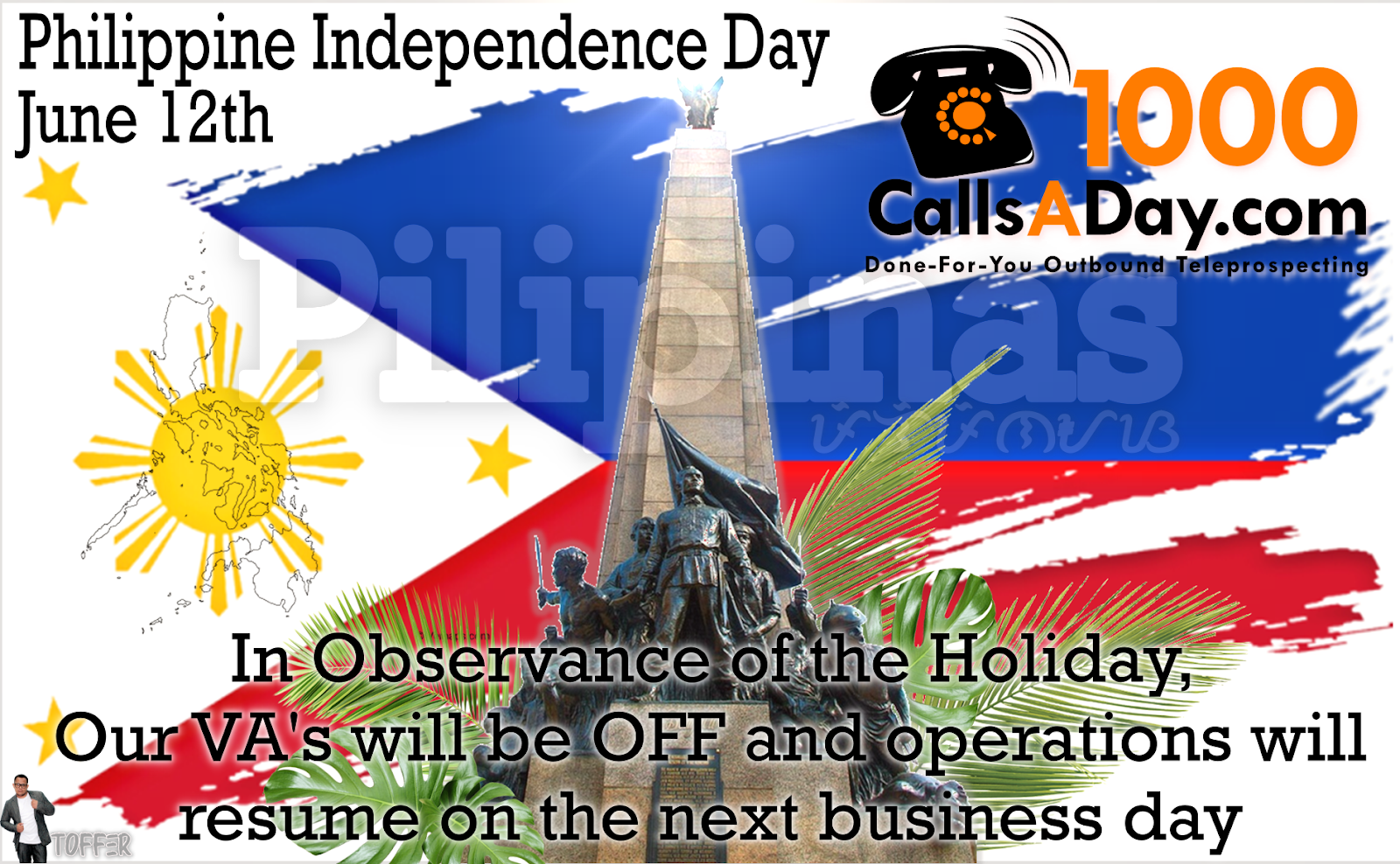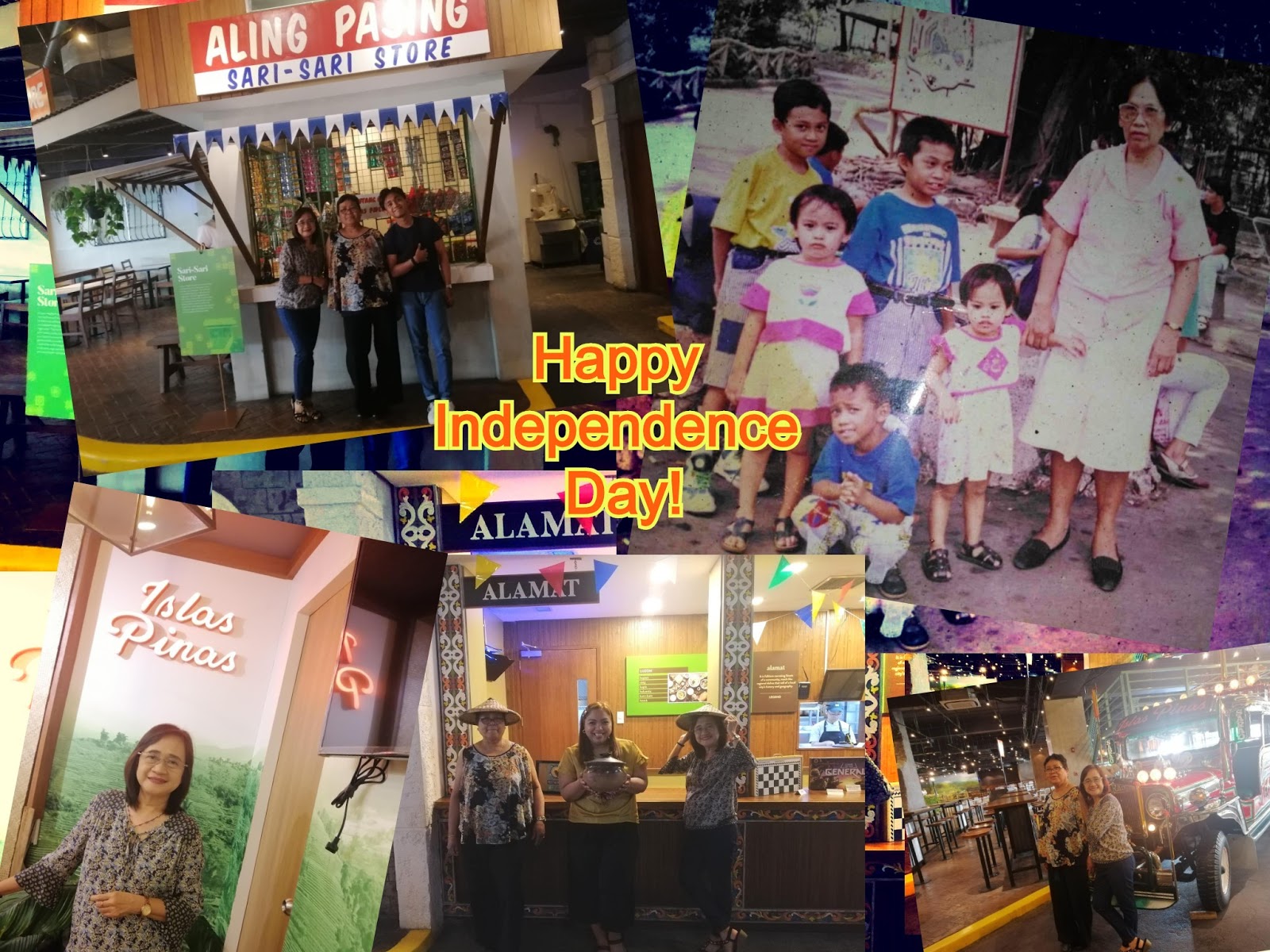
This Friday, June 12th will be a day off in observance of Filipino Independence Day allowing our virtual assistants to celebrate the country's historical independence from Spain with their families. Normal Operations will resume Saturday, June 13th.
In an effort to share the rich history and culture of our virtual assistants, or as my daughter says “our Filipino family”. I wanted to do some research on the upcoming holiday to learn more about the origin. I expected to read about the war with Spain and the establishment of the modern democracy we all know as the Philippines (named originally for King Philip II of Spain) today. It was fun to learn that there was much more complex history associated with the celebration of Philippine Independence Day.
In 1896 Emilio Aguinaldo joined his fellow Freemason lodge member Andres Bonifacio’s secret society Katipunan fighting for Filipino independence from Spain. A divisive split happened in the group in 1897 and ultimately Bonifacio was executed and Aguinaldo exercised total leadership in the revolution against Spain thereafter. Aguinaldo met with the Malolos Congress and drafted a new constitution on June 12th, 1898. He was officially sworn in as the first President of the Philippines in January of 1899, but this heady triumph would prove to be short-lived, and the road to true independence much longer.
During this time America was fighting the Spanish American War and in the Treaty of Paris, signed in December 1898, Spain ceded its rebellious colony in South East Asia to America. This caused some big waves of dissent and saw the dawn of the Philippine-American war. Aguinaldo’s revolutionaries were soon forced to use guerilla war tactics armed with knives, bows, spears and other primitive weapons against America’s guns and other high tech weapons. Ultimately Filipino forces lost their footing around major cities as the US Armed Forces set up areas of internment and segregation of the civilian population to “protect” Filipinos from the guerilla warfare. The unsanitary conditions in these “protection zones” caused dysentery, cholera, and famine killing many civilians. The estimated loss of Filipino life in this time varies from modern-day estimations of 200, 000 to 1,000,000 which was estimated historically.
It should be noted that many Americans were opposed to the annexation of the Philippines and there was an effort to organize this effort and educate the American people on the atrocities happening abroad. Mark Twain famously used the press to share his personal views, and those shared by many members of the American Anti Imperialist League.
“There is the case of the Philippines. I have tried hard, and yet I cannot for the life of me comprehend how we got into that mess. Perhaps we could not have avoided it—perhaps it was inevitable that we should come to be fighting the natives of those islands—but I cannot understand it, and have never been able to get at the bottom of the origin of our antagonism to the natives. I thought we should act as their protector—not try to get them under our heel. We were to relieve them from Spanish tyranny to enable them to set up a government of their own, and we were to stand by and see that it got a fair trial. It was not to be a government according to our ideas, but a government that represented the feeling of the majority of the Filipinos, a government according to Filipino ideas. That would have been a worthy mission for the United States. But now—why, we have got into a mess, a quagmire from which each fresh step renders the difficulty of extrication immensely greater. I'm sure I wish I could see what we were getting out of it, and all it means to us as a nation”(1)
Finally, on March 16th, 1900 the Second Philippine Commission headed by future President Taft found a way to peaceful negotiations with Aguinaldo and established a limited offering of legislative and executive powers, civil service, municipalities, popular elections, and tax collection amongst much other basic governments and legislative branches. This begins the “tutelage” phase of the US administration’s relationship with the Philippines. It is not for another 46 years before the US grants the Philippines and her people their sovereignty, on July 4th, 1946.
The Philippines would celebrate its independence on July 4th for the next 15 years until May 12, 1962, when President Diosdado Macapagal moved the officially recognized Independence Day to June 12, 1898. At the time was criticized for politicizing the holiday. In an address to the Filipino people on June 12, 1962 President Macapagal famously said,
“There had been other Asian revolutions before. But the revolution which culminated on June 12, 1898 was the first successful national revolution in Asia since the coming of the West, and the Republic to which it gave birth was the first democratic Republic outside of the Western hemisphere.”(2)
While June 12th in the Philippines isn’t celebrated with the kinds of pomp and pageantry you see in America on July 4th. It remains a time to celebrate being Filipino with friends and family, eating good food, singing, and playing music. If you’re lucky maybe able to get in a good game of Sipa, the traditional native sport that predates the Spanish colonization. It personally reminds me of hacky sack meets tennis. Happy Philippine Independence Day to all our amazing friends and colleagues in the Philippines!

Notes and Reference Material:
(1) Twain, Mark (October 6, 1900). "Mark Twain, the greatest American humorist, returning home". New York World. New York City.
(2)https://www.esquiremag.ph/long-reads/why-philippines-independence-day-is-on-june-12-a00293-20190607-lfrm?fbclid=IwAR3yaKnS2QPrlTvF8wvcVzuzSDh8XAZh61BhTzvrIzl46rn3z0kE7n3ZPis
https://www.biography.com/political-figure/emilio-aguinaldo
